From the indictment of armed robbers to the arrest of student killers at Tehran University
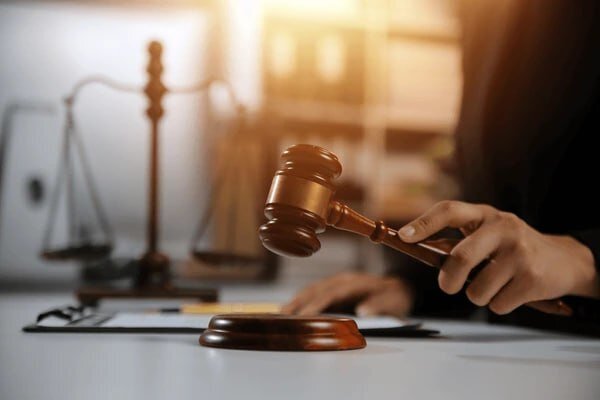
According to the Mehr correspondent, the judiciary is one of the three pillars of the government that is responsible for the implementation of justice, the protection of citizens' rights, and the oversight of the laws. As an independent institution in the Islamic Republic of Iran, it is responsible for dealing with lawsuits and legal disputes, investigating crimes and violations, issuing it and enforcing it. In this regard, the judiciary strives to provide social security and justice for all members of the community by providing easy access to legal services.
The judiciary provides a variety of services to citizens through courts, prosecutors and other affiliated institutions. These services include legal advice, litigation and complaints, prosecution of criminal and civil cases, and the enforcement of judicial sentences. The purpose of these services is to protect citizens' personal and social rights, to establish justice and prevent corruption and violations of laws in society. The judiciary, by rapid and fair investigation into the cases, somehow strengthens public confidence in the judiciary and legal sovereignty.
In the past year, various issues were raised in the country's judiciary, and some actions and some were postponed to the new year. In February, the judiciary was accompanied by various events and events that we will review in this report.
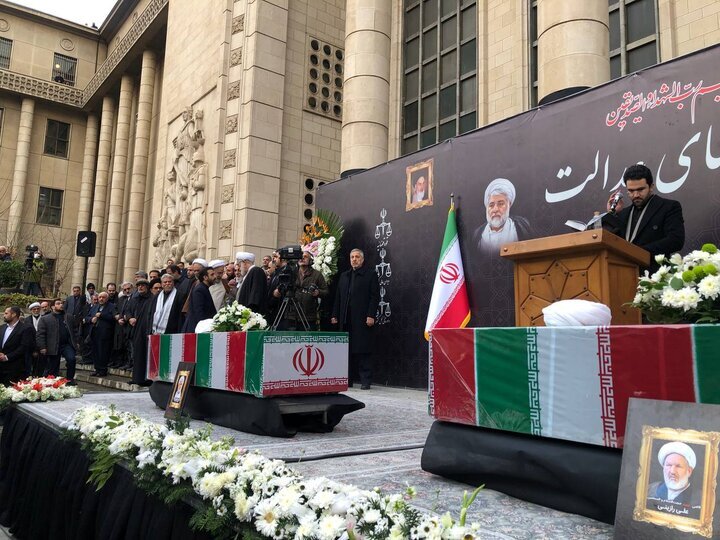
“Martyrs of Justice” in Tehran
On the morning of January 9, a planned manner of the two most influential judges in the fight against national security, Hojjat al -Islam Muhammad Moghiseh and Hojatoleslam Ali Razini, was shot dead. The funeral of “Martyrs of Justice” was held on the morning of February 1, with the presence of military and state officials from the door of the Administrative Justice Unit on Khayyam Street.
At the ceremony, Hojjat al -Islam Abdullahi, Head of the Judiciary Information Center, Abbas Masjidi, Head of Forensic Medicine, Gharib Abadi, Head of International Affairs of the Judiciary, and the Secretary of the Human Rights Staff, Jahangir, and Deputy Director of Crime Prevention. The inspection, Hojjatoleslam Mozaffari, Deputy Judiciary, and other senior judicial and government officials and the people were present.
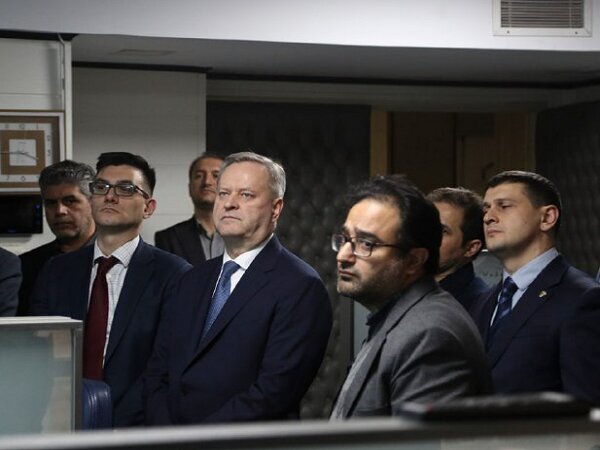
The presence of the Deputy Prosecutor General of the Russian Federation in the Judiciary
Also in February last year, the Deputy Prosecutor General of the Russian Federation and the Board of Representatives on February 1, while visiting various departments of the Judiciary Statistics and Information Technology Center, discussed the issues with the President and Deputies of the Center. At the end of the meeting, the Judiciary of the Russian Federation, along with the head of the Center for Information and Technology, and some deputies and managers of the center visited various departments including technical support, system monitoring and databases.
Continuing
Also, in February last year, the 27th, 28th and 29th hearing of the allegations of the MEK, as well as the nature of the organization as a legal person, in the eleventh branch of the Tehran Province Criminal Court, presided over by Judge Hojjat al -Islami. The defendants' lawyers were also held publicly at the Imam Khomeini Judicial Complex.
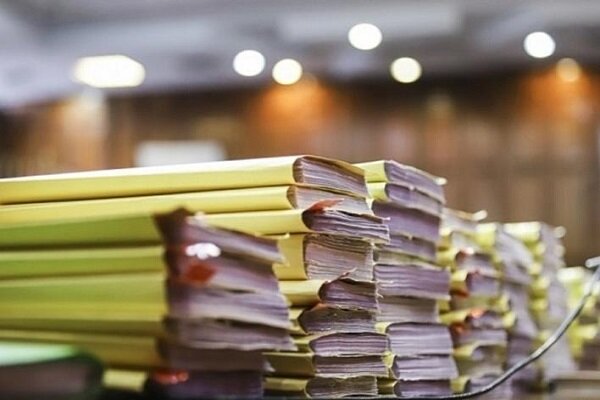
Read more
Also in February last year, the 22nd, 23rd and 24th session of the tea case was held at the first branch of the Islamic Revolutionary Tribunal for the investigation of large and major crimes in the economic system presided over by Judge, Court Prosecutors, Prosecutors, Prosecutors, Prosecutors, Prosecutors.
The defendant's wife's first -tier vehicle's case was arrested
Also in February, Abdul Karim Kalhor, a special judge of the crime in the economic system of the arrest of the first defendant's spouse, the first -degree case of the “freshman's freshman's car satisfaction”, said: Is.
Referral of the Failure of the Welfare Store to the Criminal Court of Tehran Province
Also in February last year, with the arrival of the judiciary and the ambiguity in the transfer of welfare store and the sale of numerous real estate -owned real estate and the loss of micro, banking and non -banking shareholders, the case was summoned and, after completing the investigation, was summoned by the Tehran Public Prosecutor's Office.

The last hearing of the case of the Car Alshaki Case of Satisfaction
The last hearing of the case of Kathralshaki's case of the freshness of the new car was presided over by Judge Kalhor, attended by the Public Prosecutor and Revolutionary Prosecutor of Qazvin Province, Deputy Chief Justice of the Province, and four defendants with defendants, complaints lawyers and a group of investors on February 5.
The first litigation of the families of the martyrs and the affected of the Shahcharagh shrine
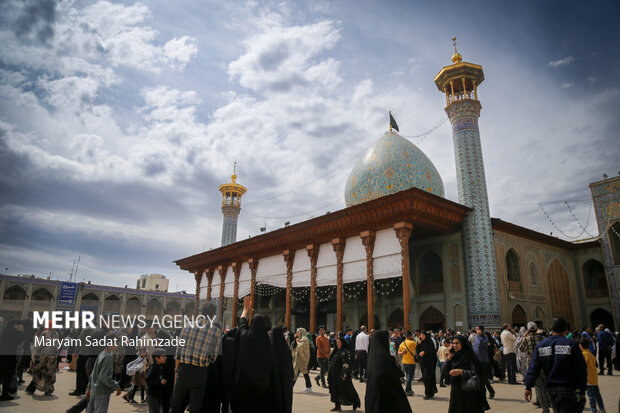
Also, the first hearing of the case of the martyrs' families and the victims arising from the actions of the terrorist group Ahmad bin Musa (AS) Shahcharagh (AS) on Sunday, February 23, at Branch 4 of the International Law Court, presided over by Judge Hosseinzadeh, attended by Abdul Poor.
Niloufar Hamedi and Elaheh Mohammadi were Amnesty February 7th
Also in February last year, the judiciary announced: Niloufar Hamedi and Elaheh Mohammadi were pardoned on the occasion of February 5, with the consent of the Supreme Leader of the Revolution with the proposed list of the head of the judiciary for amnesty.
Discover more than 5 kg of cocaine in the Persian Gulf
Mehdi Meharanir, the chief justice of Bushehr province, also announced the discovery of more than 5 kg of cocaine drugs in the Persian Gulf.
The chief justice of Bushehr province said: “It is likely that ships passing through the drug area have been thrown into the water so that their agents get the packages from the water.”
Mehrangiz said the seized drug packages have been handed over to law enforcement and investigations are under way.
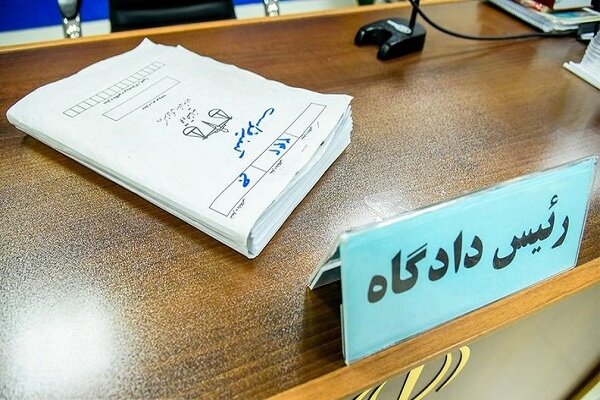
The indictment of the bank defendants was issued a tea case
Also, Tehran's prosecutor Ali Salehi, in connection with the latest status of the case of the defendants in the Tehran prosecutor's office, stated: The indictment of the main defendants in the case has been arranged in several thousand pages and sent to court. But in relation to the relevant banking violations, the case is open to the Tehran Prosecutor's Office, and the indictment of the defendants of one of the banks has been issued and sent to the court.
Issuance for the Capital Armed Thieves
Also, Ali Salehi, a Tehran prosecutor, emphasized the sensitivity of the judiciary to secure the public and the decisive and unjustified dealing with criminal gangs and armed robbers: The case of the capital's armed robbers is accused of being a member of one of the famous gangs of the capital's houses. Members of the gang have had many conflicts and armed confrontation with officers and have created public horror and police threats by publishing images of cyberspace scenes. With the indictment, the case of members of a professional armed robbery gang was sent to court.
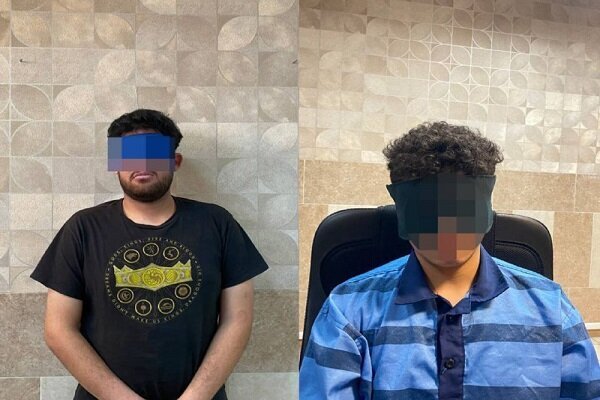
Arrests of Students' Assassination of Tehran University
Also in February last year, Judge Shahriari, the head of the Criminal Prosecutor's Office, announced: The defendants of the murder of a student at the University of Tehran were arrested in a judicial and technical act and confessed to the robbery and murder of Amir Mohammad Khaleghi in initial investigations. Initial investigations revealed that the defendants were motivated by the robbery. The main defendant, who attempted to murder and steal (motorcycle cracks) is the identity of Ahmed, a 2 -year -old Ahmed and a motorcycle rocker with the identity of Amir. The defendants are detained and the case is in the process of conducting a preliminary investigation.
(tagstotranslate) The Majlis Court (T) Mohammad Shahriari (T) Judicial System (T) 22 Bahman (T) Ali Salehi (T) Criminal Prosecutor's Office (T) Amir Mohammad Khaleghi (T) Judicial Complex (T) Judicial Complex (T) Tea (T) Tea Group
Source:mehrnews